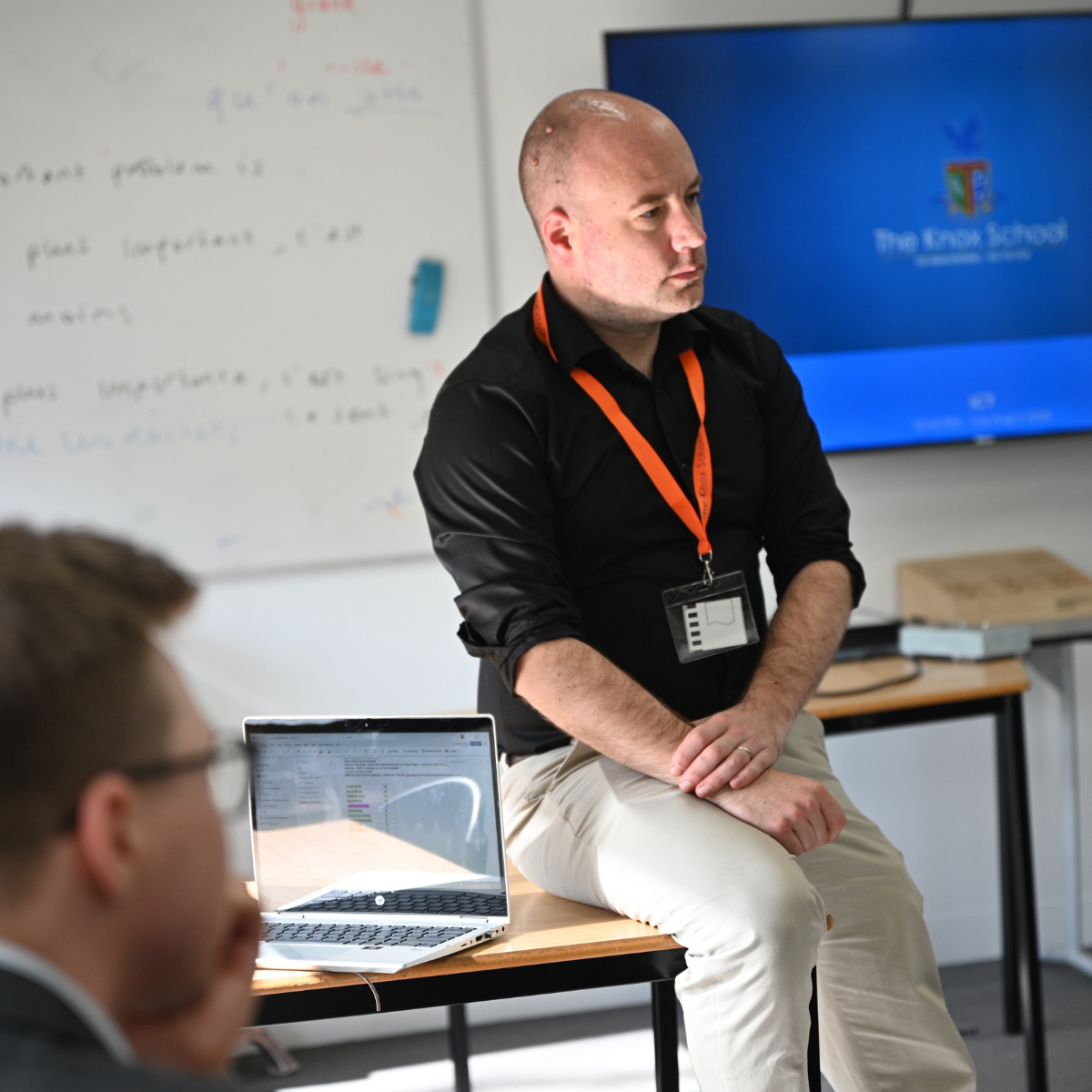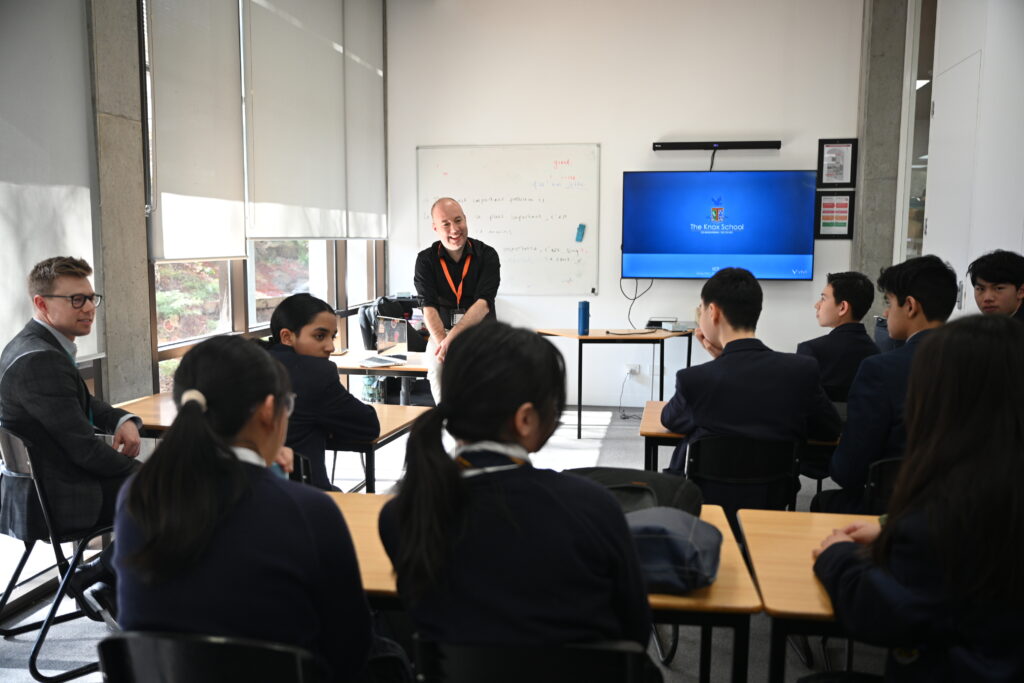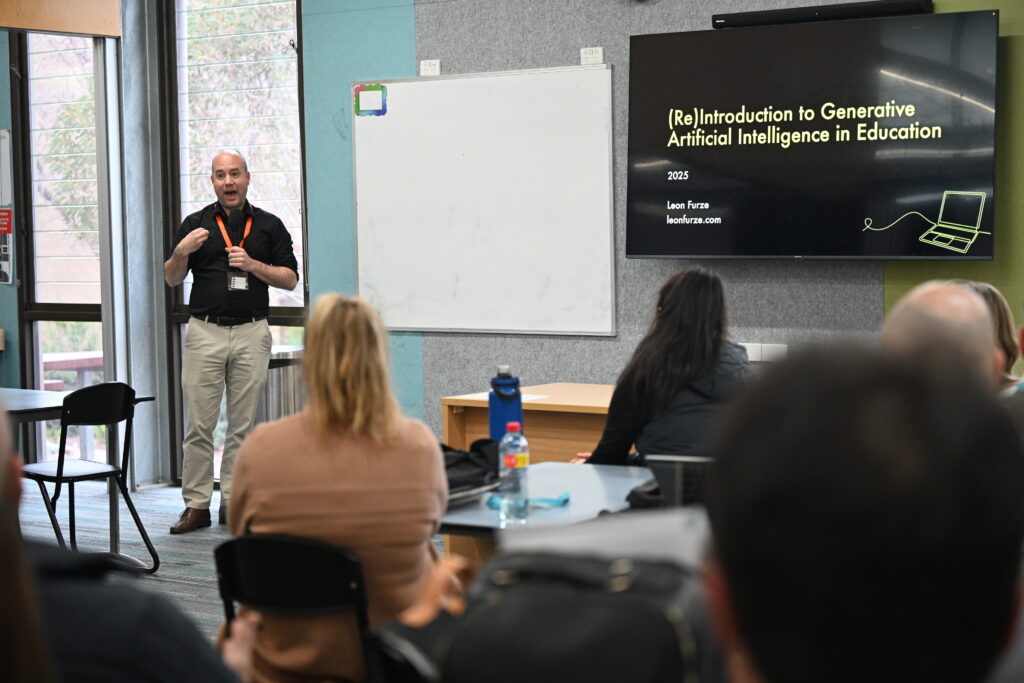
Partnering with Dr Leon Furze on AI in Education
Artificial intelligence is no longer a niche topic; it is woven into the tools and platforms students use every day. That is why we have partnered with Dr Leon Furze, an educator, researcher and advisor specialising in AI and writing instruction, to help us take a thoughtful and future-focused approach. Over two days on campus, Leon worked with students, teachers and leaders to ensure AI strengthens learning rather than replacing it.
Across a tightly structured program, Leon facilitated sessions with staff and students. These included a recorded parent conversation about how generative AI is changing the way children learn, the opportunities it creates and how families can support safe and ethical use at home. Students participated in a workshop on responsible AI use and contributed to shaping our student-friendly guidelines.
You can watch the full parent interview with Leon Furze above.
Staff explored how AI could enhance inquiry and creativity in the Maker Space, developed department-specific guidelines for assessment and learning, reviewed assessment practices to protect academic integrity, and considered how AI can support teachers to provide more effective feedback. Together we also began shaping a proactive technology integration framework that aligns AI use with our broader digital strategy.
This term, we also launched our new Digital Group for Senior School students, giving them a genuine voice in shaping the role of AI in learning at The Knox School. Their insights will guide decision-making, ensure our guidelines reflect student experience and help foster a culture where young people are active partners in creating an ethical and purposeful approach to technology.

AI is changing education because the traditional model of teaching content first and then giving a task no longer holds in a world where tools can draft, summarise or generate code in seconds. As Professor Yong Zhao, who we hosted last term, has argued, the real opportunity is to use AI to uncover the challenges within learning. This means shifting from simply asking what the right answer is to asking what a worthwhile problem is to solve and what is the best way to solve it. Teachers are designing tasks where human judgement, originality and ethical reasoning are central, and students are learning to interrogate AI, question sources, verify claims and compare perspectives. In this way, AI becomes a thinking partner for brainstorming, modelling and critique rather than a shortcut.
Our work with Leon directly advances the School’s Three Journeys approach. Beyond Journey One (the academic), Journey Two focuses on developing transferable capabilities such as critical thinking, creativity, collaboration and communication. The sessions emphasised asking better questions of AI, reasoning with evidence and explaining decisions—all skills that transfer well beyond any single tool. Journey Three focuses on character, ensuring students are connected to the real world and passionate about positive change, tackling authentic problems, making ethical choices and considering the impact of technology on people and the planet.

We have chosen to avoid the extremes of banning AI or adopting it without limits. Instead, we are building a culture of purposeful use with clear guidelines, designing assessments that ensure the evidence of learning is genuinely the student’s work, focusing on tools available to all, protecting safety and privacy, and supporting staff to use AI in ways that reduce low-value administrative work while enhancing feedback.
This is not a one-off initiative. Staff at TKS continue to refine guidelines and assessments, and students will keep practising the habits that matter: asking sharper questions, exercising sound judgement and using powerful tools ethically. By carefully considering our purpose, we can prepare students not just to keep up with change, but to lead it.
